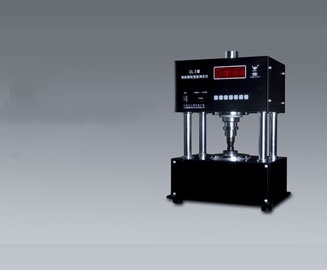What is particle strength?
In industrial production and quality control, the strength of granular materials is a key indicator for measuring their performance and stability. Whether it's maintaining catalyst activity, ensuring fertilizer compressive strength and abrasion resistance, maintaining pharmaceutical particle integrity, or assessing fruit firmness and storage and transportability, accurate determination of particle strength is crucial. Fully automatic particle strength testers, as technological pioneers in this field, have become indispensable testing tools for numerous industries due to their high efficiency, accuracy, and automation.
The intelligent particle strength tester is a new generation product following the DLII intelligent particle strength tester. Its circuit principle and structure have been significantly improved, further enhancing its overall functionality. It can be widely used in the chemical, pharmaceutical, and petroleum industries to determine the crushing strength of spherical, strip-shaped, and columnar rigid materials such as catalysts, molecular sieves, aluminum phosphide, alumina, and adsorbents. It is a comprehensive product combining microcomputer technology, electronic technology, and mechanical technology. It uses a single-chip microcomputer as the control core of the instrument, a high-precision force sensor as the force detection element, a high-precision length measuring device as the length measuring instrument, and a precision operational amplifier to ensure linear processing of analog signals. This instrument boasts high precision, comprehensive functions, and simple operation, offering a high performance-price ratio. It features data storage, repeated data display, and calculation capabilities. When used alone as a strength tester, it can display and store the breaking force value of each sample, calculate various values specified in relevant standards, such as the average value, standard deviation, coefficient of variation, and percentage of low strength, and display these values repeatedly.
Definition
Particle strength refers to the ability of a single particle to withstand external force without breaking or fracturing. It reflects the mechanical properties and stability of particles and is of great significance in many fields.
For example, in the pharmaceutical industry, the strength of drug particles directly affects the quality and stability of the drug. If the particle strength is too low, it is easily broken during production, transportation, and storage, potentially leading to inaccurate drug dosage, reduced efficacy, or even the formation of impurities. In the mining industry, the strength of ore particles is crucial for processes such as crushing, screening, and beneficiation. High-strength particles can reduce losses during transportation and handling, improving production efficiency. In the building materials industry, the strength of granular materials such as cement and sand determines the performance and durability of building materials such as concrete.
The fully automatic particle strength tester adopts advanced microcomputer control technology, integrating functions such as force application, measurement, display, maximum strength value locking, and reset. During testing, the instrument automatically applies pressure to the particle sample until the sample breaks, simultaneously recording and displaying the pressure value at the time of breakage, i.e., the particle strength. This process is fully automated, requiring no manual intervention, greatly improving testing efficiency and accuracy.
Factors Affecting Particle Strength
1. Material Properties of the Particles
- Chemical Composition: Different chemical compositions result in particles with different strength characteristics. For example, particles containing more hard minerals generally have higher strength.
- Crystal Structure: The crystal structure of particles also affects their strength. For example, particles with a dense crystal structure tend to be stronger than those with a loose structure.
- Particle Size and Shape: Generally, smaller particles may have higher strength because they have a relatively larger surface area, higher surface energy, and stronger interparticle bonding. The shape of the particles also affects strength; for example, spherical particles generally have higher strength than irregularly shaped particles.
2. Manufacturing Process and Treatment Methods
- Molding Method: Different molding methods affect particle strength. For example, the strength of particles molded by pressing, extrusion, etc., may be affected by factors such as molding pressure, temperature, and time.
- Drying and Sintering Processes: Drying and sintering are crucial steps in the preparation of some particulate materials. Appropriate drying and sintering conditions can improve particle strength, while inappropriate conditions may lead to a decrease in particle strength. For example, excessively high sintering temperatures may cause excessive shrinkage or cracking of the particles, thus reducing their strength.
- Surface Treatment: Surface treatments, such as coatings or encapsulation, can improve the strength of the particles. Surface treatments can increase the particles' wear resistance, corrosion resistance, and bonding strength, thereby improving their overall strength.
3. External Environmental Factors
- Humidity and Temperature: Humidity and temperature have a significant impact on particle strength. In high humidity environments, particles may absorb moisture, causing changes in their internal structure and reducing their strength. Temperature changes may also cause thermal expansion or contraction of the particles, thus affecting their strength. Especially under extreme temperature conditions, the strength of the particles may change significantly.
- Loading Method and Speed: When particles are subjected to external forces, the loading method and speed also affect their strength. For example, slow loading and rapid loading may lead to different failure modes and strength values. In addition, different loading directions (such as compression, tension, shear, etc.) also affect particle strength.
Particle strength directly affects the performance and lifespan of the product. In the catalyst industry, high-strength particles ensure stability and activity during the reaction process; the strength of fertilizer particles affects breakage rates and application effectiveness during transportation; the integrity of pharmaceutical particles directly impacts the release and absorption of the drug; and the firmness of fruit is a crucial indicator of its ripeness and storage and transportation resistance. Fully automated particle strength testers provide these industries with a scientific quality control method through precise measurement, ensuring product quality and stability.
Applications
- In pharmaceutical manufacturing, particle strength is crucial for drug production, packaging, and storage. For example, the hardness and stability of tablets depend on particle strength. High-strength particles produce tablets with moderate hardness, are less prone to breakage, and facilitate packaging and transportation. Furthermore, particle strength also affects drug release rate and bioavailability.
- Pharmaceutical companies typically use particle strength testers to measure the strength of drug particles to ensure drug quality meets standards. Simultaneously, by optimizing particle preparation processes and formulations, particle strength can be improved, thereby enhancing drug quality and stability.
2. Mining Industry
- In the mining, crushing, and beneficiation of ores, particle strength is a key parameter. High-strength ore particles are less prone to breakage during transportation and handling, reducing dust generation, equipment wear, and energy consumption.
- Mining companies select appropriate crushing equipment and processes based on the strength of the ore particles. For example, for higher-strength ores, more powerful crushers and more complex crushing processes can be used to ensure the ore is sufficiently crushed to the required particle size. Meanwhile, particle strength also affects mineral processing efficiency, as particles of different strengths may behave differently during the beneficiation process.
3. Building Materials Industry
- The strength of granular materials such as cement and sand directly determines the performance and durability of building materials such as concrete and mortar. High-strength granular materials can produce stronger and more durable building materials.
- Strict control of granular material strength is necessary during the production of building materials. For example, by selecting suitable raw materials, optimizing production processes, and conducting quality testing, it can be ensured that the strength of granular materials meets building standards. Simultaneously, particle strength also affects the workability of building materials, such as flowability and density.
Fully automatic particle strength testers are widely used in various industries, including catalysts, fertilizers, pharmaceuticals, and fruits. In the catalyst industry, it helps manufacturers ensure the activity and stability of their products; in the fertilizer industry, it helps improve the compressive strength and abrasion resistance of products; in the pharmaceutical industry, it ensures the integrity of particles and the release of drug efficacy; and in the fruit industry, it becomes an important tool for measuring fruit quality and storage and transportation resistance.
Technical Advantages
1. High-Precision Measurement: Wide measurement range, covering 10 to 500 N, adaptable to particle diameters from 0.5 to 25 mm, meeting the needs of various industries. Measurement resolution up to 1/60000. Measurement error less than 0.1%F·S±1N, ensuring accurate and reliable test results.
2. High Degree of Automation: The instrument automatically completes operations such as force application, measurement, display, locking, and reset. Users only need to place the sample to obtain test results, greatly simplifying the operation process.
3. Intelligent Data Processing: Measurement data is automatically processed, including outlier labeling and removal, measurement count and averaging, providing users with comprehensive and accurate test reports.
4. Convenient Operation: Small size, low noise, easy user operation, stable and reliable performance. The instrument display is designed for automatic switching between 0.0N and 0.00N, with a sensitivity of up to 0.1 Newtons and a measurement control cycle of only 0.2 seconds, ensuring rapid response and high precision in testing.
5. Printing Function: Automatically prints sample measurement reports, facilitating user recording and traceability of test results.
In conclusion, the fully automatic particle strength tester, with its significant technological advantages such as high-precision measurement, high automation, intelligent data processing, user-friendly operation, and printing function, plays an indispensable role in numerous industries including pharmaceuticals, mining, and building materials. It not only provides various industries with scientific and precise quality control methods, effectively ensuring product quality and stability, but also promotes increased production efficiency and optimized processes in related industries. With continuous technological advancements, it is believed that the fully automatic particle strength tester will usher in even broader development prospects, bringing innovation and transformation to more fields.


